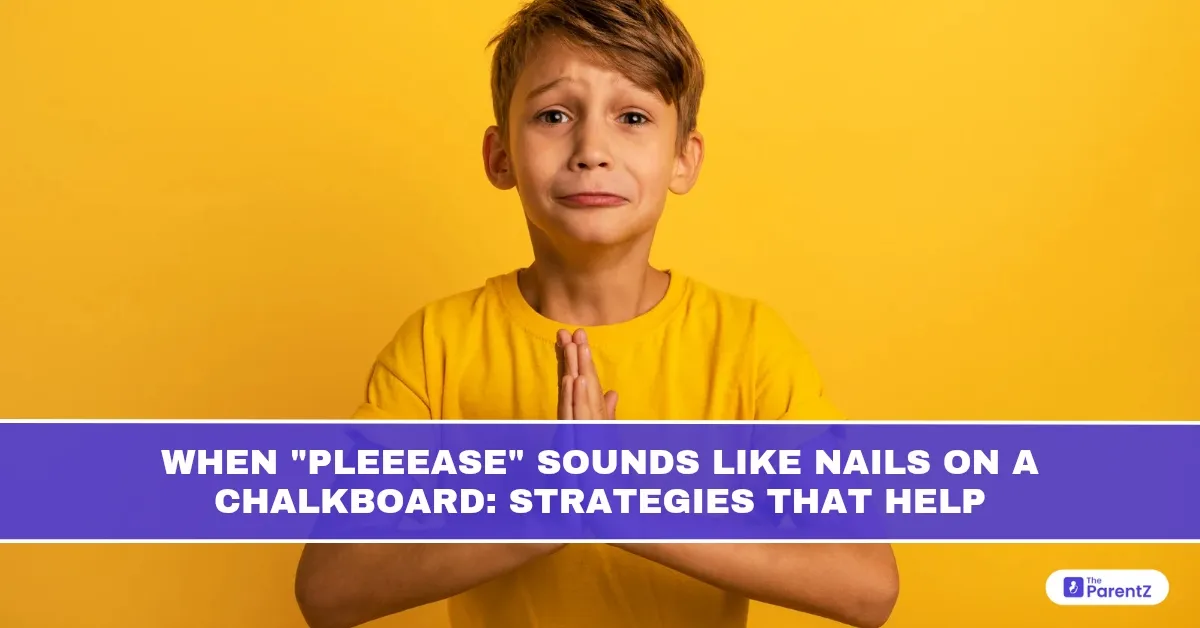There comes a moment—usually after a long day, a half-drunk coffee, and a sticky floor—when your child lets out the dreaded word. Not just please. No. It’s the musical, theatrical, stretched-to-infinity version— Pleeeeease!
You know the one.
It starts with wide eyes, maybe a pout, a head tilt. Then it escalates. And something in your brain just short-circuits—not from anger, but from pure overstimulation.
Read below to explore some effective strategies on how to deal with the word ‘Please’ from your little ones.
What That Whine Is Really Saying
The fact is— they’re not doing this to be difficult. That dramatic plea is usually just a messy attempt to express big feelings they don’t yet know how to manage.
Begging works sometimes. And that’s all they need—a win or two—to lock in this behavior as a “strategy.” Your job? To gently let them know there’s a better way to be heard.
Setting Boundaries Without Raising Your Voice
This is where your calm firmness becomes gold. When you hold the line—not by yelling, but by staying steady—you teach them that whiny pleas won’t move the mountain.
It’s not about being rigid. It’s about creating trust. When they know you mean what you say (and say it without flaring up), they slowly learn that drama doesn’t equal results.
Acknowledge, Don’t Always Agree
Often, all they need is to feel heard. That doesn’t mean you have to say yes. Try reflecting their feelings back— ‘You really want that candy.’ No lecture. No bribe. Just emotional validation.
You’re showing them: I hear you. I care. But I’m still not changing the answer. That balance is where healthy emotional habits grow.
Let Humor Be Your Secret Tool
Not every plea needs a firm wall. Sometimes, a little humor defuses the drama better than a lecture. A playful, exaggerated “Pleeeease, huh?” back to them might pull out a giggle—and lower the stakes for both of you.
You're not mocking—you’re connecting. And that helps your child find more flexible ways to express themselves.
When You're Being Watched (And Judged)
Public meltdowns are a different beast. In a store or among relatives, that whining might feel like a spotlight on your parenting. But here's the truth: those onlookers don’t go home with you. Your child does.
So ignore the judgment. Stick to your plan. These are the moments that shape behavior—not just today, but for years ahead.
You're the Model—Even on Tired Days
You may not realize it, but they’re always watching. If they hear sarcasm or exasperation when you say “pleeease,” it sinks in. You’re not expected to be perfect, but you’re the voice they’ll mimic.
So give yourself grace. Take breaks when you need them. But remember that your calm tone teaches more than any lecture.
Conclusion
That long, dramatic "pleeease" might drive you up the wall. But responding with steadiness and compassion helps your child understand what real communication sounds like.
Every time you choose patience over power, you’re building a lifelong skill in them—and deep resilience in yourself.






Be the first one to comment on this story.